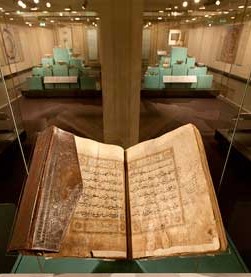 Arab merchants and traders, such as Abdullah al Qassim from Bahla, Oman, were important members of the Arab community in 10th century Canton and contributed to the building of the first mosque in China.
Arab merchants and traders, such as Abdullah al Qassim from Bahla, Oman, were important members of the Arab community in 10th century Canton and contributed to the building of the first mosque in China.
There is evidence that a king of Kerala became the first-known convert to Islam from India. He went to Mecca to meet the Prophet Mohammed, and then settled down in southern Oman. He sent messengers and established the first ten mosques on the west coast of south India.
Oman’s 5000-year-old history of trade has also left its imprint within the land, where there developed a unique climate of openness and tolerance, as noted in this quote from the Englishman John Ovington, chaplain to King James II, on his visit to Muscat in 1633:
“These Arabians are very courteous and extremely civil to all strangers; they offer neither violence or affront in any way; and tho’ they are very tenacious of their own principles, and admirers of their own religion, yet do they never impose it on any; nor are their morals evened with such furious zeal, as to divert them of humanity and a tender respect … In fine, these are a people naturally temperate and just, and embued with those excellent qualities which Grecian philosophers and Roman moralists endeavoured to inspire into their subjects, tho’ they missed their aim.”
Minorities which were persecuted elsewhere found respite and a home in Oman, where they were amicably integrated into society.



